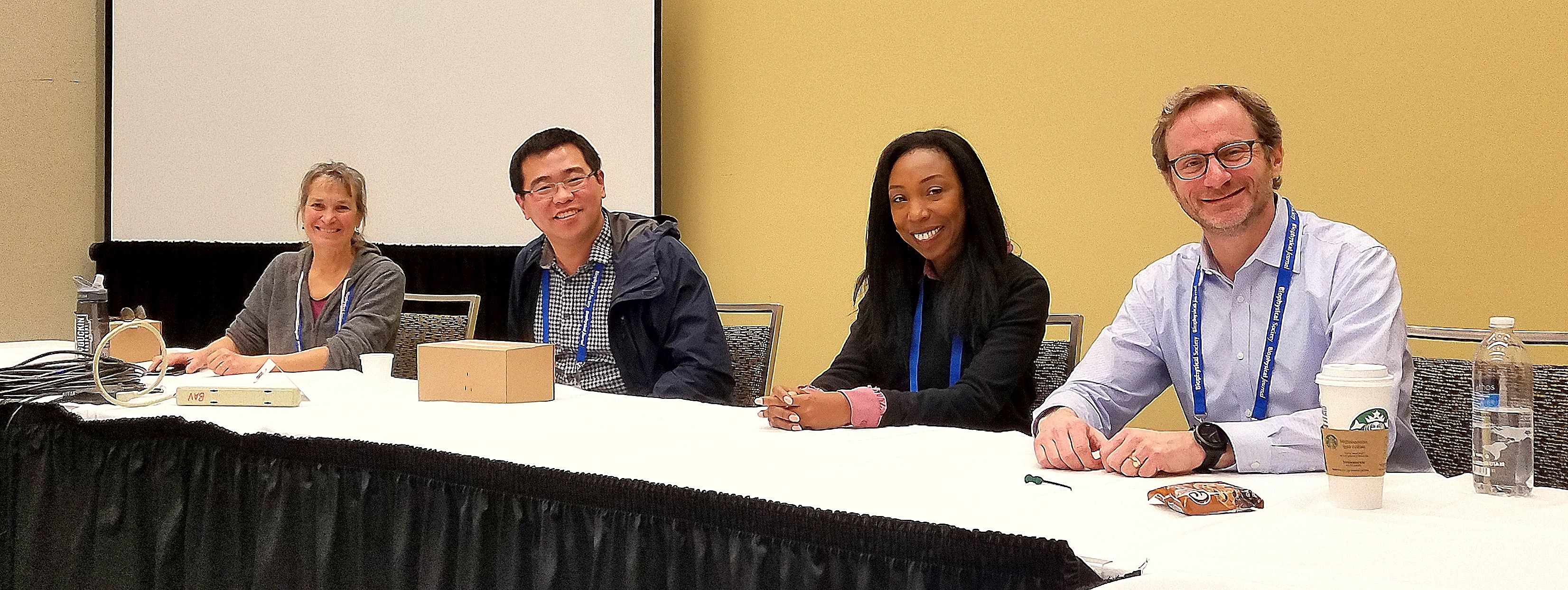 With the ever-increasing number of postdoctoral fellows all over the world ready to take on the academic job market, overcoming this transition barrier to become a junior faculty is possibly the most critical challenge faced by a postdoctoral trainee today. You can never have a group of postdocs gather without this topic invariably being brought up, and questions galore being discussed to shreds. So, what better place than BPS to find answers to all these questions?
With the ever-increasing number of postdoctoral fellows all over the world ready to take on the academic job market, overcoming this transition barrier to become a junior faculty is possibly the most critical challenge faced by a postdoctoral trainee today. You can never have a group of postdocs gather without this topic invariably being brought up, and questions galore being discussed to shreds. So, what better place than BPS to find answers to all these questions?
While planning my Tuesday March 5 in the BPS planner I noticed the Postdoc to Faculty Q&A forum, and wondered how I had missed it earlier. This was essentially a pre-registered luncheon with a 60-attendee limit to registration. However, others were welcome to participate on a space-available basis. Off I go, unregistered, yet unfazed. By the time I was there, a queue had formed outside rooms 331/332, similarly waiting without having registered in time. The session organizers had definitely anticipated this, and a second discussion panel was arranged to accommodate the extras. Therefore, there were two parallel forums, of about 4 panelists and ~60 wide-eyed prospective faculties each. Here are the wonderful panelists in my forum who did such an amazing job answering all our queries:
Dr. Cathy Proenza from University of Colorado
Dr. Ming-Feng Tsai from University of Colorado
Dr. Kandice Tanner from NIH
Dr. Joseph Mindell from NIH
The discussion covered a wide array of topics based on the questions from the attendees and while some of these points may have already been known by the postdocs, these ideas so far had been vague at best in our heads. It felt refreshing to have them put together coherently from members who have been in search committees multiple times. In case you missed the session, here are the take-home points.
Plan your applications well: Needless to say, all four of the panelists agreed that the entire application process should be given a lot of thought and time. As Dr. Tanner put it succinctly, “start planning ahead, identifying fits earlier than later”. However, not all questions seemed to have a straightforward answer. The panelists could not reach a consensus regarding how many applications you should short-list. While a couple of them felt that selecting only a handful of very targeted institutes where you know you are a good fit should be your strategy, others felt that you can be a bit more extensive in your initial selection. However, make sure that the fit is realistic, and the selectors can get a good grasp of your enthusiasm to work there.
The proposal: The unanimous agreement was that the proposal forms the most important part of the application package. It is not the novelty but the practicality of the proposal that matters more. Does your proposal answer the following questions: (1) Are alternative strategies and pitfalls of the proposal addressed well? (2) Are the funds and techniques required reasonable to be provided by the institute? (3) Does it tie up well with the job description and the department? The committee is looking for ideas that are tailor-made to benefit the group, instead of something generic.
What else is the committee looking for? While publication history, awards and achievements are important, the crucial point in the application is that it should reflect your ability to be an independent investigator. The best way to do that would be to have an independent grant, of course. In fact, the two junior faculty members in the panel, Dr. Tsai (with NIH grant) and Dr. Tanner (DOD breast cancer grant) had grants of their own when they transitioned. Another way to establish independence is to demonstrate work that is not associated with your past mentors. A good direction to pursue in that regard was pointed out by Dr. Mindell – try to club the techniques and systems you worked on during your PhD and postdoctoral research, and come up with a new idea. This can even be applied in case of the application proposal.
Chalk talks: Many postdocs may not be aware, that during the interview, the candidate is expected to give a chalk talk walking the interviewers through their research proposal. Note that this is different from the presentation highlighting your past work, and must be framed in the same format as an RO1 grant. Practice well for this talk, and prepare to be grilled in extreme detail!
Network and contacts: Similar to any job search scenario, here too there is no alternative to networking and building contacts. A conference like BPS should be ideal for that. With solid contacts, you may even get to know of prospective positions, which have not been advertised yet!
So go ahead and get going with your proposal and contacts. Happy transitioning!
